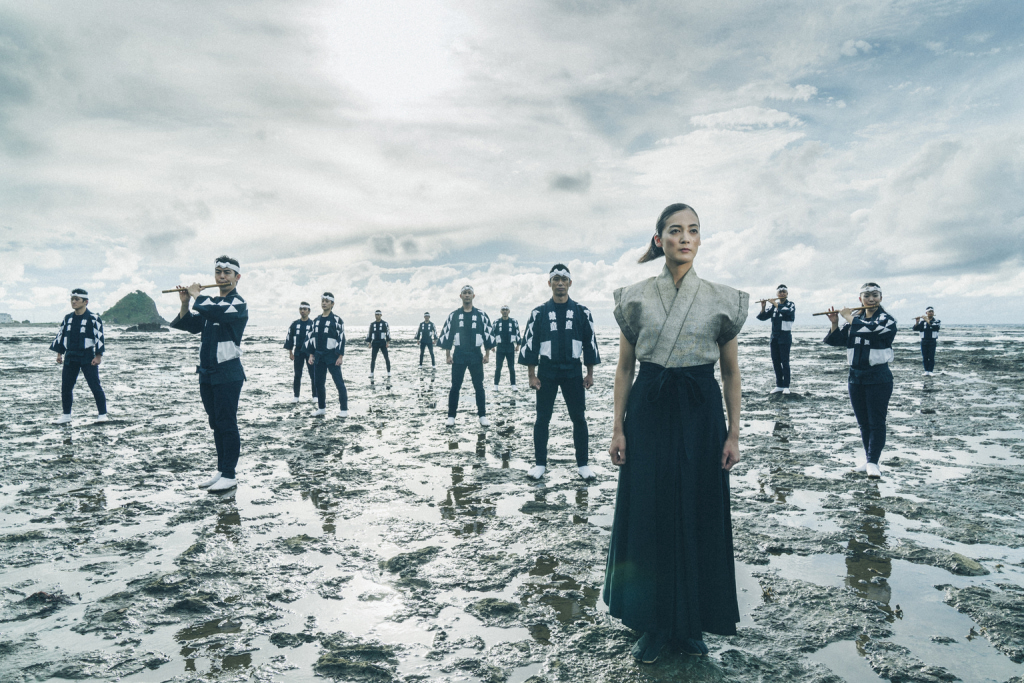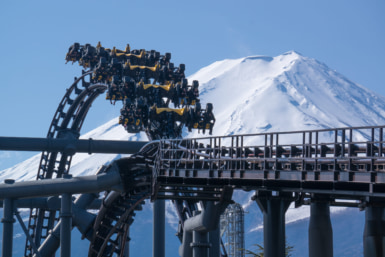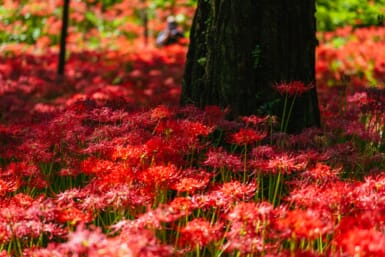The internationally-renowned Kodo, Taiko Performing Arts Ensemble’s power, passion and pure dedication to the art form sweeps spectators along in its thundering wave. A performance features ferociously pounding taiko (Japanese drums), accompanied by the piping notes of bamboo flutes or traditional singing, all culminating in a show that never fails to strike a chord deep within the audience.
The 37-strong Kodo team lives alongside residents on Sado Island in Niigata where it annually holds its renowned Earth Celebration festival. There are three types of Kodo performance: Interactive, a show with emcees to explain the instruments; One Earth, usually performed en masse in a concert hall or theater; and small group performances.
TW spoke exclusively to two members of the legendary group, ahead of Kodo’s “One Earth Tour: Cycles,” which touches down in Tokyo in December.
Taiyo Onoda was born in America and has been a full member of Kodo since 2019, while veteran Yoshie Abe joined the group two decades ago. She took maternity leave in 2011, and then rejoined five years later.
Both have very different experiences within the team, yet many aspects are touchingly parallel. They speak of the pressure of upholding Kodo’s international reputation, its demanding schedules, and — despite this — their love for the art form.
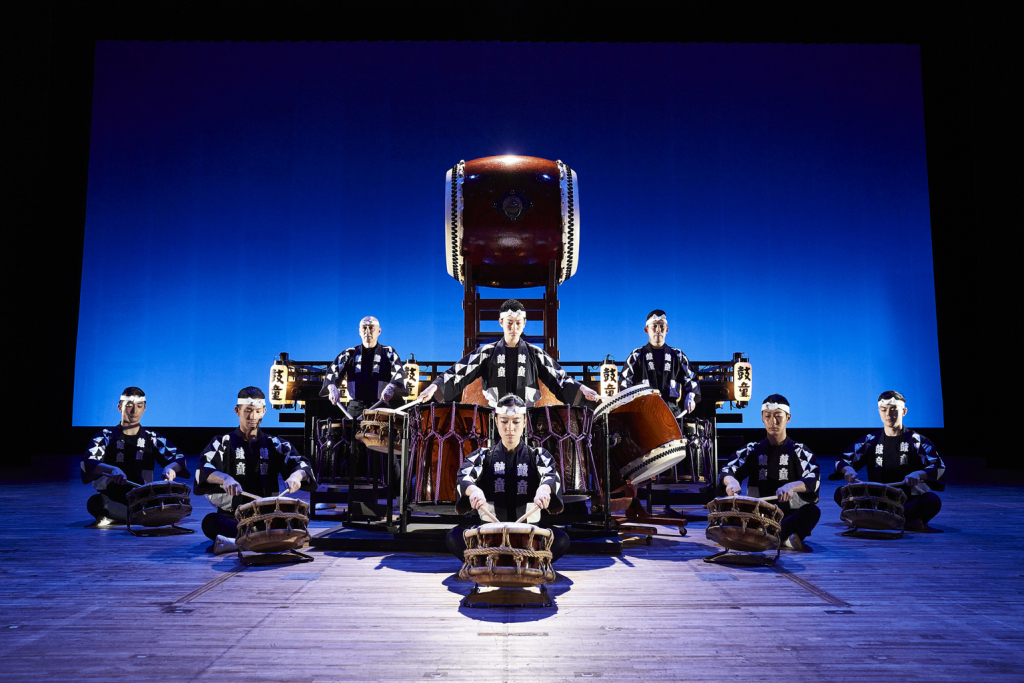
How To Be Accepted Into Kodo
To become a Kodo member, one must show dedication by attending the Kodo Apprentice Center, which tests its aspiring members in a myriad of ways.
Upon entry, apprentices must hand over their phones and computers. Tobacco and alcohol must not be consumed during its two-year duration, and relationships are forbidden.
“You have to face yourself as well as your fellow apprentices,” says Abe. “It is not enough to simply like taiko: you have to go beyond that.”
The grueling morning schedule involves a 10-kilometer run, followed by cleaning and tidying. The afternoon curriculum focuses on building knowledge around Japanese culture and traditions. This includes tea ceremony and Japanese theater practices, such as Noh.
“Everything revolves around developing each individual as a person,” explains Onoda. “So when you play the drums, it helps portray how interesting a person you are.”
Both Onoda and Abe emphasize the importance of living one’s life pre-Kodo in order to play the taiko with passion.
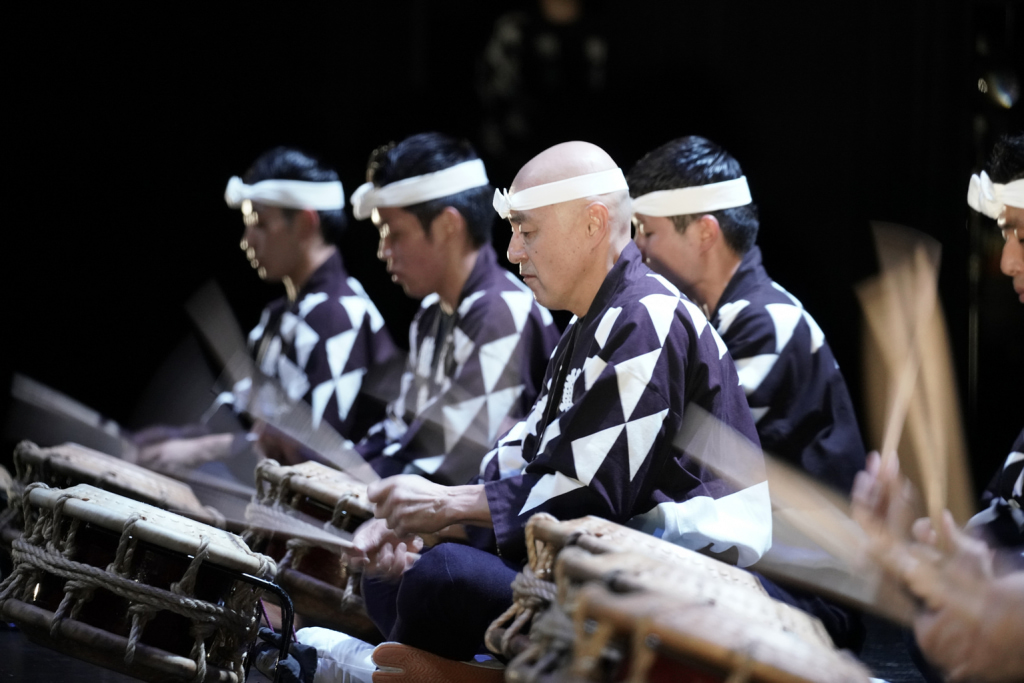
(c) Takahashi Okamoto
Kodo and Nature
Apprentices also take turns working in Kodo’s fields on Sado, growing crops, harvesting rice and vegetables, and foraging in the mountains. Traditionally, the main role of playing taiko was to ask the gods for a bountiful harvest at festivals. Apprentices need to understand this context to appreciate the traditional role of taiko.
Living as an apprentice for two years is an effective test to see whether aspiring members can hack the Kodo lifestyle and, unsurprisingly, many do not manage to complete the full apprenticeship. But those who do make it may call themselves fully fledged Kodo members, accepted by the surrounding community on Sado Island.
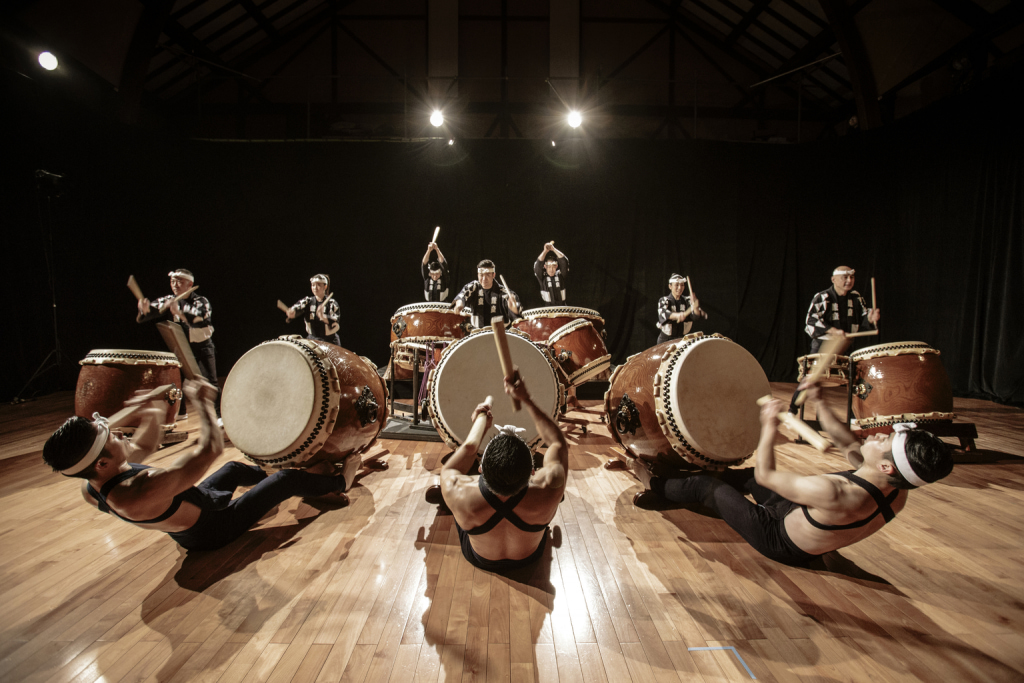
(c) Takahashi Okamoto
Kodo Life and High Expectations
When not on tour, Kodo members work a strictly scheduled five-day week. A typical day starts at 9am in the practice hall for warm-up exercises and finishes with individual practice until 9pm.
Days in the practice hall usually consist of a mixture of personal and group practices, often with an upcoming tour in mind. Preparation begins between a year and six months in advance.
This rigid structure has barely changed throughout the 41 years since Kodo first formed.
Practice schedules aside, however, the team is challenged in another way too. Both Onoda and Abe speak of the struggle of trying to attract younger audiences to the Kodo shows, and the many discussions within the group about how to address this. The team, which already has several social media accounts, eventually decided to share content on a new platform, TikTok, launching the Kodo Heartbeat channel during the Covid pandemic.
The younger members had to work hard at persuading the rest of the group that they needed, as Onoda puts it, “to follow trends.” The veterans, and even the younger members themselves, were – and remain – torn between keeping up “traditional” appearances and appealing to a younger demographic. But, as Onoda points out, staying abreast of worldwide developments is vital when trying to connect with an audience.
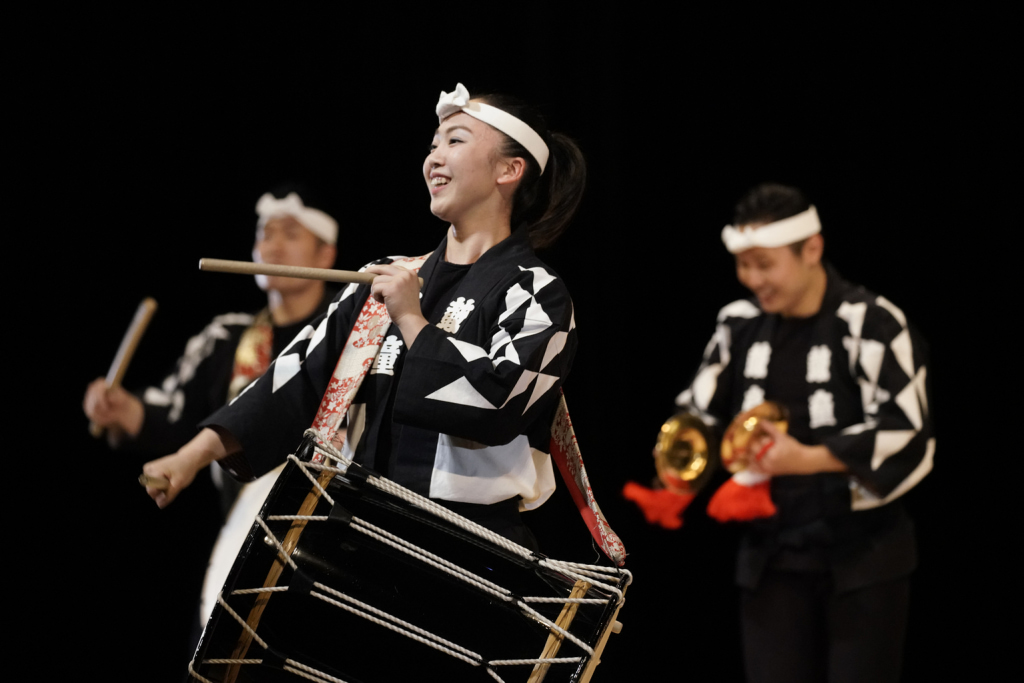
(c) Takahashi Okamoto
Kodo Drummers and Sado Island
Both Onoda and Abe describe how living in natural surroundings on Sado is important to playing the taiko. “On such a rural island, we feel nature firsthand,” Onoda explains. “We feel the cold winter and the scorching hot summer. We also feel the benefits of nature, like seasonal foods.”
Living among nature allows the performers to get into the mindset of the original composers of the folk songs they play. “Every note will have some sort of emotion, some sort of feeling behind it,” Onoda says.
The island also acts as a haven.
“I think [Sado] is a place where you can reset or refresh yourself,” Abe says. “Coming back here, I feel liberated, as though nature brings me back to a positive mindset.”
There is also a practical element to the group’s relative isolation, as Onoda points out. “If we had our headquarters in Tokyo, we probably wouldn’t be able to have a practice space where we can play due to the noise complaints.”
Indeed, the individual practice in the evening gets so loud that earplugs are “a must.”
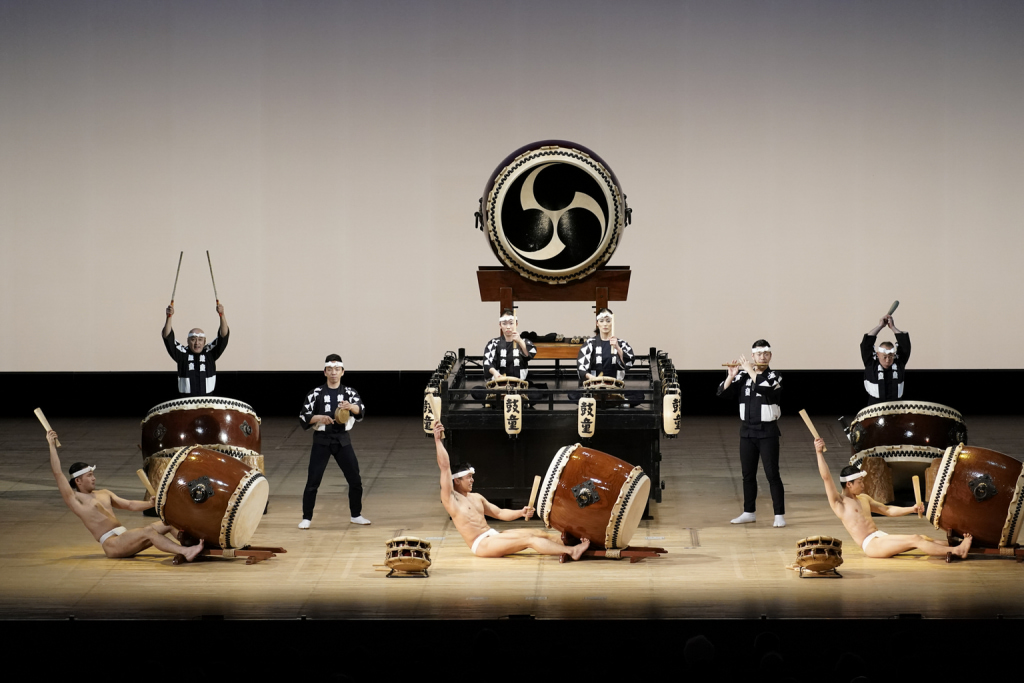
(c) Takahashi Okamoto
The Future of Kodo
One of Kodo’s core values is to find new meaning and value behind the centuries-old instrument.
Abe tells us that time on tour is an integral part of this, as it gives them a chance to “meet” new instruments and art forms. Onoda highlights the importance of sharing ideas, such as through the online masterclass Kodo Taiko School. This kind of collaboration is a vital source of inspiration for the group.
Talking to both Onoda and Abe reveals the passion they share for both Kodo and taiko. Onoda tells us his aspirations to join began at a young age when he saw them perform in LA. Abe, in turn, says that upon having children she actually quit performing, but the pull of Kodo was too strong, and she came back five years later. “I just couldn’t stay away.”
Kodo One Earth Tour 2022: Cycles (Michikake) Japan Tour
Cycles explores the ever-changing rhythms of the natural world. Kodo endeavor to capture the feeling of these cycles with taiko music, exploring the rhythms of the tide and the moon through established and brand-new pieces.
For dates and ticket information, visit the Kodo website.

